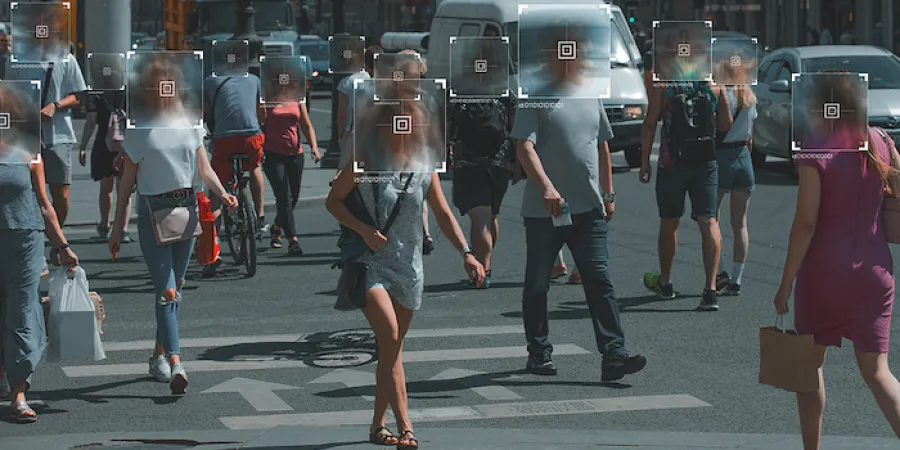Pangea to offer AI-based solutions for psychophysiological analysis
The company plans to add the new technology to its international product portfolio and integrate it into solutions concerning border control and secure IDs
IsraelDefense
| 09/08/2022
Pangea IT, an Israeli supplier of digital transformation solutions for government and enterprise organizations, has announced it will be acquiring the assets of Sensority – an Israeli startup which develops IoT devices.
The acquisition, which includes patents, technologies and products developed by the latter for Liveness Detection and the visual identification and analysis of psychological stress (VSA), will enable Pangea to offer AI-based solutions for psychophysiological analysis around the world.
The technology analyzes subjects' stress level based on physiological indicators and detects when, and in response to which questions, the stress level increases. The system – which identifies over 100 different psychophysiological parameters and uses patented algorithms that define the stress level – analyzes real-time video of the subject's face and can identify whether the image represents a living person rather than a photo or a deepfake.
Pangea plans to add the technology to the product portfolio it sells on the global market and to integrate it into concerning border control and secure IDs.
Furthermore, Pangea has established a new company, which will develop applications for public safety and government.
“Sensority's unique technology will join our existing border-control product and serve as another layer in our ability to carry out quick and accurate checks on travelers at border control, “ said Rafi Kaminer, Founder and CEO of Pangea.
“Border police will be able to ask travelers a number of predefined questions, such as the purpose of their visit, while monitoring their stress levels. In exceptional cases, police will refer passengers over to security officers in an internal interrogation room who will use the system as well.

Rafi Kaminer, Pangea CEO. Credit - David Garb
“The process will be conducted without holding up the line, will be short and high-quality, and border police won't have to rely only on their intuition to detect problems."
The system provides assessments that include psychological insights based on artificial intelligence. Security officers receive text or audio alerts about anomalous detections and are able to build a psychological profile of the subject in real time.
Sensority's technology was developed with a major investment of millions of dollars, and of approximately 100 man-years. Three patents were filed during development, one of which was approved while the other two are nearing the end of the process. To date, the system has been sold in 15 countries around the world.
The company plans to add the new technology to its international product portfolio and integrate it into solutions concerning border control and secure IDs
Pangea IT, an Israeli supplier of digital transformation solutions for government and enterprise organizations, has announced it will be acquiring the assets of Sensority – an Israeli startup which develops IoT devices.
The acquisition, which includes patents, technologies and products developed by the latter for Liveness Detection and the visual identification and analysis of psychological stress (VSA), will enable Pangea to offer AI-based solutions for psychophysiological analysis around the world.
The technology analyzes subjects' stress level based on physiological indicators and detects when, and in response to which questions, the stress level increases. The system – which identifies over 100 different psychophysiological parameters and uses patented algorithms that define the stress level – analyzes real-time video of the subject's face and can identify whether the image represents a living person rather than a photo or a deepfake.
Pangea plans to add the technology to the product portfolio it sells on the global market and to integrate it into concerning border control and secure IDs.
Furthermore, Pangea has established a new company, which will develop applications for public safety and government.
“Sensority's unique technology will join our existing border-control product and serve as another layer in our ability to carry out quick and accurate checks on travelers at border control, “ said Rafi Kaminer, Founder and CEO of Pangea.
“Border police will be able to ask travelers a number of predefined questions, such as the purpose of their visit, while monitoring their stress levels. In exceptional cases, police will refer passengers over to security officers in an internal interrogation room who will use the system as well.

Rafi Kaminer, Pangea CEO. Credit - David Garb
“The process will be conducted without holding up the line, will be short and high-quality, and border police won't have to rely only on their intuition to detect problems."
The system provides assessments that include psychological insights based on artificial intelligence. Security officers receive text or audio alerts about anomalous detections and are able to build a psychological profile of the subject in real time.
Sensority's technology was developed with a major investment of millions of dollars, and of approximately 100 man-years. Three patents were filed during development, one of which was approved while the other two are nearing the end of the process. To date, the system has been sold in 15 countries around the world.



